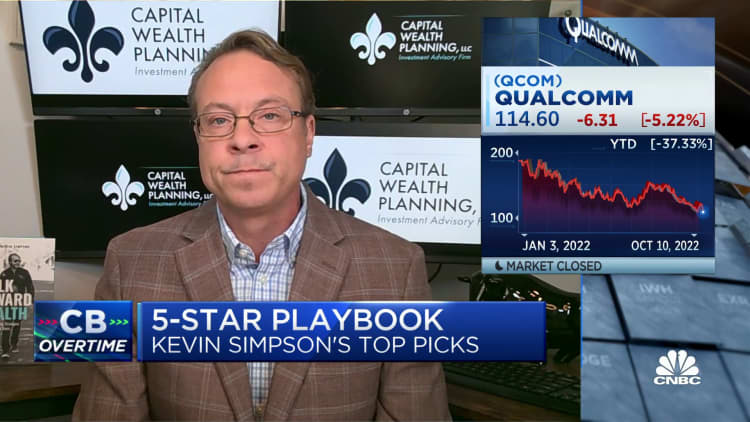
U.S. stocks fell Tuesday, reversing gains from earlier in the day as investors looked ahead to key inflation data out later in the week that will give the Federal Reserve updated information on the state of the U.S. economy.
The S&P 500 slipped 0.65% to close at 3,588.84 after rebounding from a multiyear low earlier in the session. The Nasdaq Composite fell 1.10% to 10,426.19, its lowest close since July 2020. Tuesday's losses notched the fifth day in a row of declines for both indexes. The Dow Jones Industrial Average rose 36.31 points, or 0.12%, to close at 29,239.19, bolstered by jumps in Amgen and Walgreens Boots Alliance.
Bond prices also fell, and the yield on the U.S. 10-year Treasury neared the key 4% level overnight. Yields stayed high on Tuesday with the 10-year yield up about 5.8 basis points at 3.943% at market close. Bond yields move inversely to prices, and a basis point is one hundredth of one percent.
Stocks fell off highs of the day and bond yields ticked up when the Bank of England said in the afternoon its market intervention will be over soon, and that pension funds have just three days to rebalance positions.
Loading chart...
Investors are awaiting a few key inflation reports out later in the week that will inform how aggressively the Federal Reserve will hike interest rates going forward to tame inflation. On Wednesday, the producer price report will be released. That's followed by the September consumer price index Thursday. On Friday, September retail sales will give further insight into consumption.
The path of the central bank's interest rate increases will determine whether or not the U.S. economy falls into a recession or experiences a soft landing.
"This is an awful stock market environment that is grappling with a weakening economy, uncertainty over earnings and how long the Fed's tightening will last, and sentiment issues with an extremely risk averse investor psychology," said David Bahnsen, chief investment officer of The Bahnsen Group, in a Tuesday note.
"We believe the Fed will raise interest rates one or two more times until the Fed funds rate reaches 4% and then take a pause, at which point the Fed will assess the damage done," he added.
JPMorgan CEO Jamie Dimon on Monday warned that the U.S. would likely fall into a recession over the next "six to nine months," and said the S&P 500 could fall another 20% depending on whether the Federal Reserve engineers a soft or a hard landing for the economy. Stocks fell Monday, with the Nasdaq notching a 2-year low, around the comments which hit technology stocks.
This week also kicks off earnings season. On Friday, JPMorgan, Wells Fargo, Morgan Stanley and Citi – four of the world's largest banks – report quarterly earnings.


